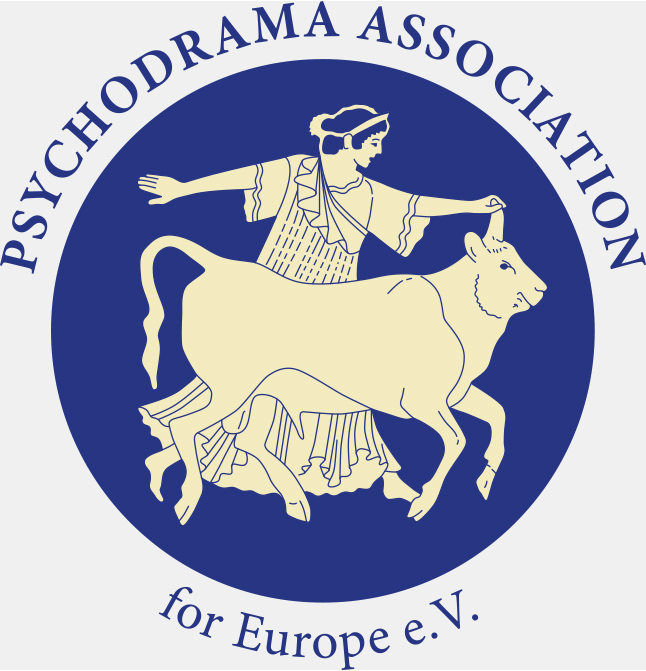Psychodrama was invented by Jacob Levy Moreno in the beginning of the 20th century. It was the same time when psychoanalysis was being developed by Freud, which enriched our understanding of human psychopathology and its causes. Moreno who had been inspired by these ideas, started his own quest in exploring human nature. He perceived people living in societies as unhappy and stacked with not enough courage and strength to change. As an ambitious man, he desired to find a way to conquer those human boundaries and limiting schemas. While watching free and uninhibited children joyfully playing, easily switching positions and roles, using and challenging their capabilities, he discovered the extreme developmental potential lying in a creative and spontaneous action. Since that moment Moreno started his own very creative journey of psychodrama development. He understood the limits, social rules, interdependencies and frames; however, he believed in individual’s right to authentically grow and explore their nature, influence the reality with respect and tolerance to others. Psychodrama pays a lot attention to the concept of a true encounter between different people and cultures, which enhances tolerance, personal growth and mutual understanding and cooperation. Society was so important and fascinating for Moreno that he even invented a tool to measure its interrelations that is called Sociometry.
As a human being is never isolated. He is always bound into relations and relationship networks. These networks can support, protect or impede – but they always determine our life. Nevertheless, most people know frighteningly little about these relationship networks. Because Moreno understood this, he was able to develop tools to make these relationships visible. Using the tools of sociometry, psychodrama helps to make visible the closeness and distance, sympathy, antipathy or indifference, repulsion and attraction that exists between people. It is clear from everyday
Whereas the theory of roles shows us the enormous power of habits and stereotypes that restrain human beings, cause anxiety and low self-esteem, psychodrama fortunately gives us the tools to overcome this situation. Role reversal is one of the main means used on psychodramatic scene that help persons encounter themselves, as well as confront their issues, symptoms or enrich their potential on behavioural, cognitive and emotional level. Such meeting usually realises energy, brings new insights, perspectives and sparks life changes.
Moreno speaks of a „Surplus-Reality“ which evolves on the stage. There it is possible to take on roles which are unattainable in normal everyday life. It gives us the chance to experiment with new behaviours, experience different roles or even train them to see how we feel about them and to gain new possibilities. Though challenging, it is very fruitful at the same time. There it is possible to be a queen, or a crocodile. I can meet the dead on the stage, see my future or confront my weaker inner self… All this makes the stage an incalculably valuable analytical instrument and a space without boundaries for discovering good solutions.
Nevertheless, psychodrama is not a theatre, there is no actor, or a fixed scenario, there are only protagonists, leaders and the group trying to find and explore different options that appear spontaneously in their minds. Moreno believes that even a small step makes a change, so how far or deep they go depends on them, there is no goal, no force. Our trainers understand the wisdom of resistance and work has to be always conducted with a full security and control. Psychodrama has its structure and rules which can be learnt during psychodrama trainings.
Even though psychodrama can be used with individuals, the group forms the heart of psychodramatic work. Perhaps the most brilliant idea of Moreno’s was to understand that groups are stronger than individuals and that consequently it is in the group where reality can be addressed. The dynamics of the group are used in psychodrama to specifically and systematically confront existing problems and questions, to set in motion the processes of change and to discover and test solutions. In Moreno’s eyes, mutual help is the ideal way to improve a situation.
The psychodramatical process of the group is dependent on the experiences which the individual group members bring with them. Again, and again the process focuses on a point where individual life-experiences become the centre of attention. A group member then becomes the protagonist and shows on stage what happened to him.
Psychodrama is an independent psychosocial method concerning the constructive shaping and structuring of group processes. It is very reach and diverse that can be used for many purposes and different groups of people. It’s very often applied by psychotherapists to work with various psychopathological symptoms as well as defence mechanisms and interpersonal problems. It is also effective in trainings, self-experience, coaching, working with business or children. For individual work exists a very similar and a parallel method called Monodrama.
